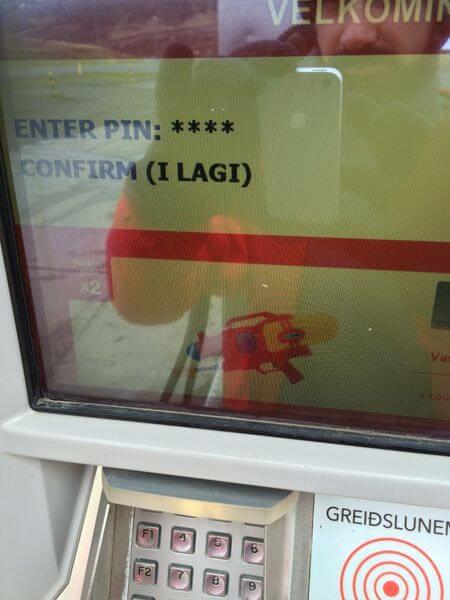Is the Barclaycard Arrival Plus Worth the Annual Fee?
Signing up for credit cards through partner links earns us a commission. Terms apply to the offers listed on this page. Here’s our full advertising policy: How we make money.
Update: One or more card offers in this post are no longer available. Check our Hot Deals for the latest offers.Million Mile Secrets Reader, Mike, commented:
Am I missing something, or is the no-fee Chase Freedom Unlimited far superior to the Barclaycard Arrival Plus? You can get more value with 1.5 Chase Ultimate Rewards points per $1 when you transfer them. Even the Citi Double Cash looks superior, earning effectively 2% cash back vs. 2.1%. And you can use it for anything and there is no annual fee. Are there any benefits other than the sign-up bonus of the Barclaycard Arrival Plus that would justify the $89 annual fee?
Mike makes some great points! There are good no annual fee credit card options that earn valuable rewards instead of the $89 annual fee Barclaycard Arrival Plus.
But the Barclaycard Arrival Plus has perks that make the card worth signing-up for, and depending on your situation, even keeping!

I’ll show you where this card outshines most no annual fee cards. And help you decide if it’s right for you!
Is the Barclaycard Arrival Plus Better Than a No Annual Fee Card?
Link: Barclaycard Arrival Plus World Elite Mastercard
The Barclaycard Arrival Plus is worth signing-up for because of its increased welcome bonus. Right now, you’ll earn 50,000 Barclaycard Arrival miles after spending $3,000 on purchases within the first 90 days of opening your account.
That’s worth ~$525 toward travel! But the ongoing rewards earning rate isn’t much better than a no annual fee card. And the miles it earns come with a few restrictions.
About Barclaycard Arrival Miles
Barclaycard Arrival miles are worth 1 cent each when you redeem toward a $100+ travel purchase. And, you’ll get 5% of your miles back every time you redeem them. This effectively makes the card a 2.1% back card when you redeem miles for travel.
Travel purchases include things like:
- Airlines
- Campgrounds
- Car rental agencies
- Hotels (including Airbnb)
Check out my post on 10 creative ways to redeem your Barclaycard Arrival miles!
How Does It Compare to Other Cards?
The no annual fee Citi Double Cash Card earns 1% cash back when you make a purchase, and another 1% cash back when you pay your bill. Nearly the same earning rate as the Barclaycard Arrival Plus!
And because you’re earning cash back instead of miles, you have the freedom to use your rewards on things other than travel!

Another thing that makes redeeming Barclaycard Arrival miles difficult is the minimum redemption for travel purchases. You have to redeem for travel purchases of at least $100. That means you can’t use your miles for that $60 Uber ride from Brooklyn to the Bronx, or your $95 Airbnb stay!
So Why Sign-Up for the Card?
The 50,000 mile sign-up bonus of the Barclaycard Arrival Plus is higher than anything you’ll get with a no annual fee card, and reason enough to sign-up for the card! The $89 annual fee is waived the first year, so you have 12 months to enjoy the sign-up bonus, and evaluate the other card benefits to decide if it’s worth keeping long-term.
1. No Foreign Transaction Fees
The Barclaycard Arrival Plus has no foreign transaction fees. This can save you big while traveling abroad!

Few no annual fee credit cards come with no foreign transaction fees. If you use the Citi Double Cash or Chase Freedom Unlimited card outside the US, you will be charged a 3% fee.
That means if you spend $3,000+ internationally, you will pay more in foreign transaction fees than for the Barclaycard Arrival Plus annual fee ($3,000 X 3% foreign transaction fee = $90 in fees).
2. True Chip-and-PIN Capability
Another rare benefit in a credit card is true chip-and-PIN capability.
If you’re traveling to Europe, having a credit card with chip-and-PIN capability could be critical to your trip! During my trip to Iceland, I needed a chip-and-PIN credit card to pay for gas. If I didn’t have my Barclaycard Arrival Plus, I’d have been stuck on the side of the road!

Most credit cards have only chip-and-signature capabilities, which won’t work with many vending machines, train stations, and gas pumps in Europe. So it’s a good idea to have at least 1 chip-and-PIN card when you travel overseas!
If you’re a frequent international traveler, these benefits might be worth the annual fee. But for most folks, it’s probably not worth keeping.
Bottom Line
The Barclaycard Arrival Plus is worth applying for because of its highest-ever 50,000 mile sign-up bonus and ongoing benefits like no foreign transaction fees and chip-and-PIN capability. But there are other no annual fee credit cards with similar rewards earning rates, like the Chase Freedom Unlimited and Citi Double Cash.
Because of the valuable sign-up bonus and waived annual fee the first year of opening your account, it’s definitely worth signing-up for the Barclaycard Arrival Plus and seeing if it is worth keeping after the first year!
Will you apply for the new Barclaycard Arrival Plus 50,000 mile bonus?
Editorial Note: We're the Million Mile Secrets team. And we're proud of our content, opinions and analysis, and of our reader's comments. These haven’t been reviewed, approved or endorsed by any of the airlines, hotels, or credit card issuers which we often write about. And that’s just how we like it! :)






Join the Discussion!